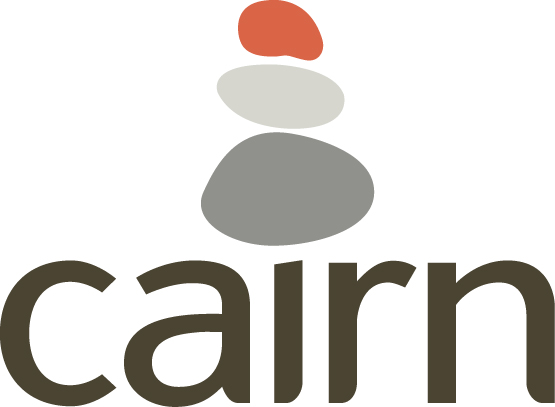What better way to start 2017 than with a true story about the power educated women have to change the world?!!
|
Education and Health Podcast
In this
podcast, the Robert Wood Johnson Foundation's Paula Braveman discusses the not-so-obvious link between education and health.
|
Education for Social Change
|
|
| Education for Social Change | Artika R. Tyner |
In this TED Talk, educator and civil rights attorney, Dr. Artika R. Tyner, shares her vision for reimagining education -- by placing an explicit focus on leadership development and social justice advocacy. In her talk, she shares her experience transforming the classroom into a learning laboratory where students experiment by applying their technical training to address the social justice challenges of our time.
|
Click here to view an infographic that describes the connection between education and health.
The mission of the
National Education Association (NEA) is to advocate for education professionals and to unite its more than 3 million members and the nation to fulfill the promise of public education so that every student can be prepared to succeed in an increasingly diverse and interdependent world.
The U.S. Chamber of Commerce Foundation's Center for Education and Workforce, through its research, programs, and policy on education and skills training, mobilizes the business community to be more engaged partners, challenge the status quo, and connect education and workforce reforms to economic development.

Cairn Guidance believes that the core of a community is how it functions as a collaborative entity to elevate all of its members. This organization works to connect and position schools, government entities, non-profits, health systems, and community organizations to enact systems change and evidence-based strategies to advance the dual goals of health and learning.
|
Our Favorite Books of 2016
We all know that learning goes beyond the classroom. Below are
some memorable book picks from 2016 that taught us some very powerful lessons
. Two provide insight and honesty around racism in America. Another provides us with tools for engaging in important but complex conversations. And the final book is a perfect read for the new year, offering excellent insights into habits and how to change them. Have a book pick to recommend? Let us know and we will feature it in our next issue!
By Gretchen Rubin
By Carol Anderson
|
|
 |
|
Happy New Year! For many of us, 2016 was a bit of a roller coaster ride, with the election, shootings, protests, vigils and more. Events last year unearthed many challenges for us as a nation and women living in the South.
But with every new year comes new opportunities, adventures, and learning experiences.
We are ready to speak truth to power, roll up our sleeves, and get the hard work done! While many resolutions made this time of year focus on changing individual habits, we encourage you to find your beauty and courage within and resolve to bring that into our very needy world.
This month we focus on learning and the impact that education has on health. We have a great line up of topics for our newsletters for 2017. We appreciate your partnership and hope to deepen our connections.
|
Social Determinants of Health: Education
Many of us know that without a good education, prospects for a good job with livable wages are slim. However, few people think of education as a crucial path to health. Education can impact health in many ways: by influencing health knowledge and behaviors; employment and income; and even social and psychological factors, including sense of control, social standing, and social networks.
People with more education are likely to live longer, to experience better health outcomes, and to practice health-promoting behaviors like getting regular exercise, refraining from smoking, and obtaining timely health care checkups and screenings. Children's health is also linked with adult e
ducational attainment:
babies born to more-educated mothers are less likely
to die before their first birthdays, and children of more-educated parents experience
better overall health.
Education, Employment & Health
Education provides the knowledge and skills necessary for employment, which can shape health in many ways. More education generally means a greater likelihood of being employed, and of having a job with healthier working conditions, better employment-based benefits, and higher wages.
Higher-paying jobs offer greater economic security and increased ability to accumulate wealth, enabling people to get health care when needed, to provide themselves and their families with more nutritious foods, and to live in safer and healthier homes and neighborhoods with supermarkets, parks, and places to exercise -- all of which can promote good health by making it easier to adopt and maintain healthy behaviors.
Education & Social Factors that Affect Health
Education is also linked with social and psychological factors, including sense of control, social standing, and social support.
People's perceptions of the extent to which they can influence their life circumstances has a direct impact on their health. Higher levels of education have been observed to foster skills, habits, and attitudes that contribute to people's expectations that their own actions and behaviors shape what happens to them. Lower levels of education, on the other hand, may lead to experiences that produce a sense of powerlessness, or the belief that one's own efforts are less important than the influence of others or chance when it comes to health or life outcomes.
Call to Action
By providing the knowledge and skills necessary to fully participate in the labor force, education can be key to promoting social mobility and breaking the cycle of intergenerational disadvantage and related health disparities.
One of the most effective strategies for reducing health disparities in the U.S. could be to take steps to close the gaps in educational attainment; investing in education could have both human and economic benefits.
|
BIG Ideas for MCH in 2017!
In the fall of 2016, we reached out to partners across the country seeking new, BOLD and innovative ideas and strategies to help advance the health of young adults and any children they may have in the future. After reviewing over 70 applications and talking to over 40 people with big thoughts, we identified 10 voices that we felt demanded to be heard.
What:
This inspiring video series will feature talks by a group of courageous and creative leaders on topics including: reproductive justice, intimacy, digital health, the power of women's leadership, leading for equity, taking back public space, caring for America, and confronting oppression.
Who
: Sponsored by the UNC Center for Maternal and Infant Health, the National Preconception Health and Health Care Initiative, the Association of Maternal and Child Health Programs, the UNC School of Social Work, and Innovate Carolina
How Can I Watch? Email
[email protected] to attend the live filming which will take place on
January 17, 2017, 5:30-8:30PM ET at
The University of North Carolina at Chapel Hill School of Social Work. C
heck the
website beforeandbeyond.org for information about attending watching via live stream that evening. The talks will be premiered at AMCHP's Annual Conference in March. We will also be boosting each video via social media and newsletters - sharing the link, conversation starters and more!
|
|
New Blog Post!
 In this blog
In this blog by one of our very own, Dr. Sarah Verbiest reflects on New Year resolutions and how to approach 2017. To learn more about her, check out this
Public Health Post. Consider following the post in the new year - they've got great content!
|
| Have Thoughts to Share? Write For Our Blog! Someone recently said, "In a job search, employers should value lived experiences as much as they do education." Do you agree? Why or why not?
We'd love to here from you! Share your thoughts by writing for our blog. Click here for more information. |
|
Stay Connected!


|
|
|